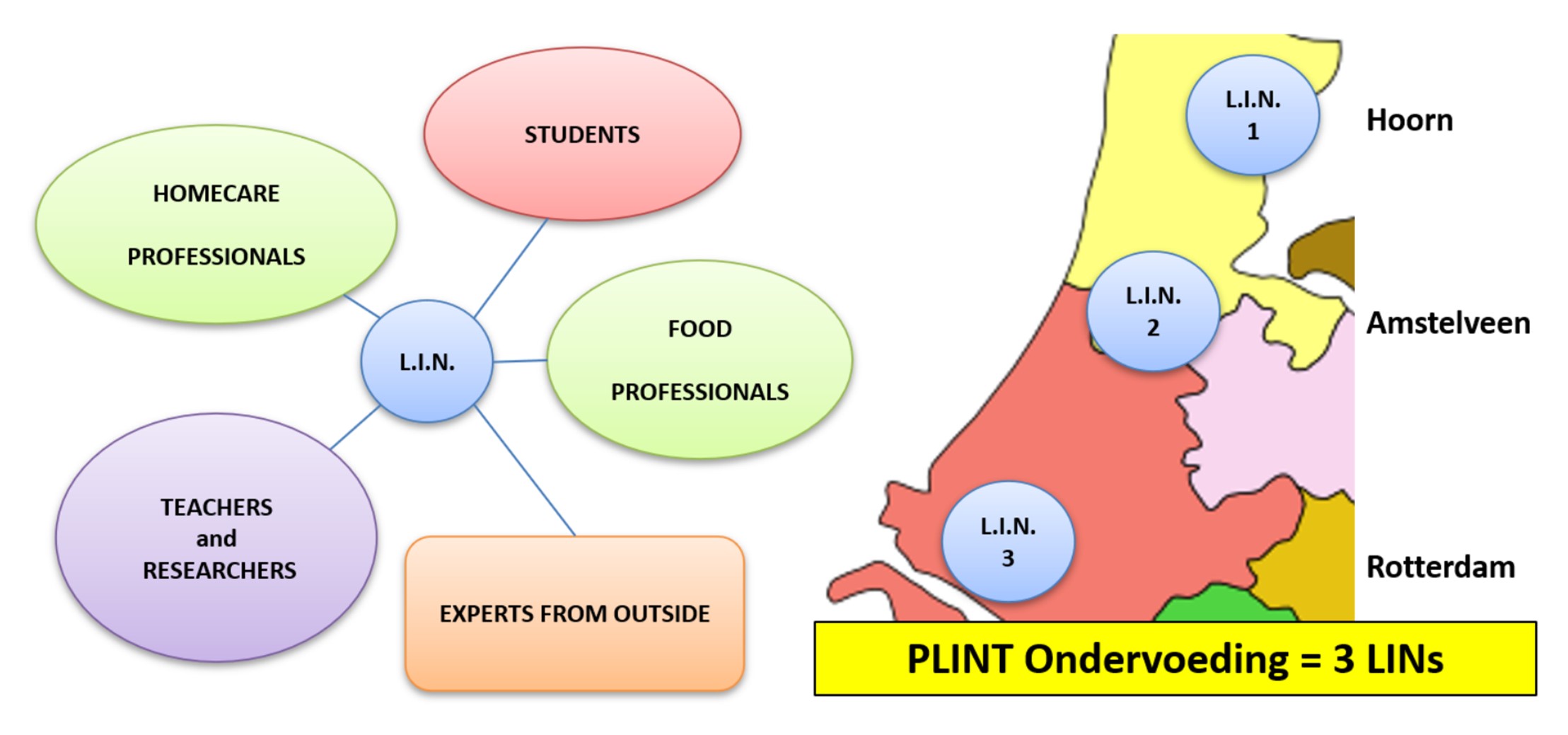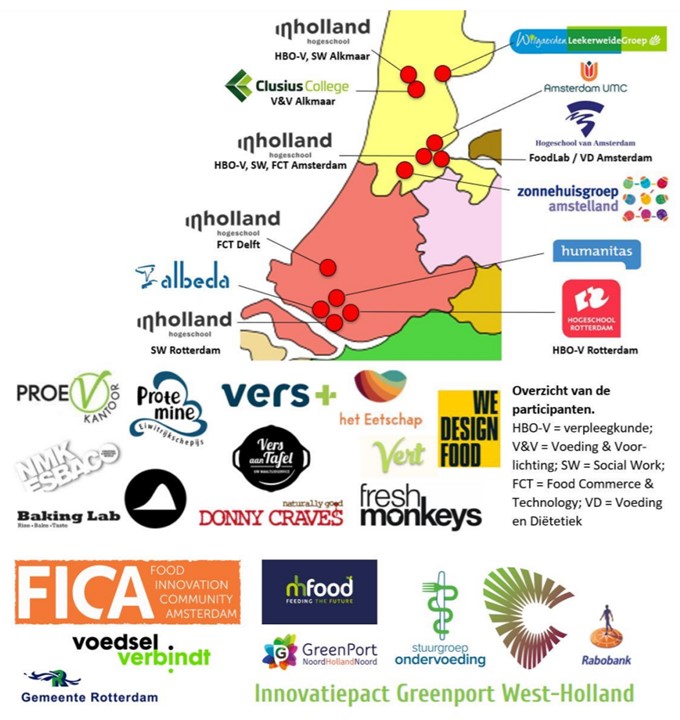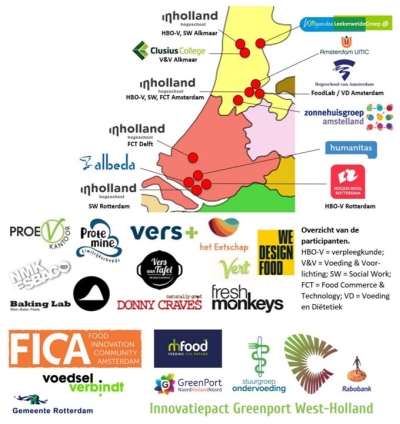Preventive Learning and Innovation Network Against Malnutrition: PLINT Ondervoeding
The PLINT Ondervoeding consortium of universities of applied sciences, institutes of vocational studies, care institutions, food companies and network organizations wishes to make a difference for elderly people at home by equipping care professionals and informal caregivers with knowledge and expertise to prevent malnutrition, by boosting food concept innovations and by raising awareness through education of the public.
Malnutrition is an underestimated problem that, in deteriorating health, leads to less recovery. Malnourished elderly people spend longer in hospital which increases healthcare costs. Of the elderly living at home, 12% is malnourished and of those who use homecare this is even 35%. This percentage could be reduced if healthcare professionals in homecare would be better equipped to prevent malnutrition. A problem with this is that the awareness of malnutrition among the elderly, informal caregivers and healthcare professionals is low.
The public-private partners in this project aim to help elderly people living at home and at risk of malnutrition, by paying attention to the prevention of malnutrition in various ways. Healthcare professionals, the elderly and their caregivers are central to the approach. First of all, healthcare professionals will gain more perspective for action by jointly learning from each other on site. Secondly, awareness among the elderly and informal caregivers is fueled by various innovations in which social and technological approaches literally provide the icing on the cake.
From the practical question "How to improve the perspectives of homecare professionals with regard to the prevention of malnutrition among elderly people living at home?" sub-questions have been distilled. These are being addressed in three Learning and Innovation Networks (LINs) in the Hoorn, Amstelveen and Rotterdam regions. Research, food innovations and knowledge dissemination are divided into work packages from the point of view of care, nutrition and communication.



